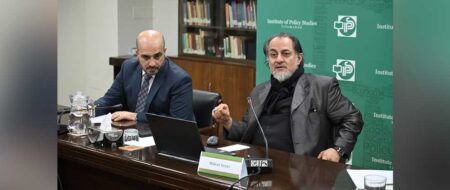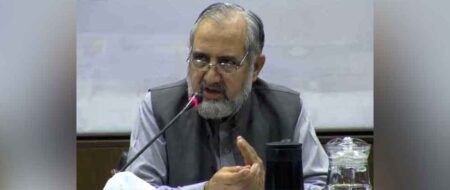Governance structures of Pakistan under formal and informal institutions

A thesis on “Governance structures of Pakistan under formal and informal institutions” was presented by IPS associate Rao Javed Iqbal at the Institute of Policy Studies, Pakistan, on 3 December 2013.
The event was chaired by Riyaz-ul-Haq, member IPS National Academic Council. DG-IPS Khalid Rahman, senior IPS associate Squadron Leader (retd.) Tariq Abdul Majeed and Amanullah Khan, member IPS NAC and Executive Committee, and members of IPS research team were also present on the occasion.
Rao Javed Iqbal, who prepared the thesis for his MS in development studies, talked about various formal and informal governance structures running side by side in Pakistan, from parliament and bureaucracy to mosques, jirgas, and NGOs.
He explained how these philosophies were different from one other, each having its own set of positives and negatives. He evaluated the systems on the scales of democracy, human rights, women inheritance, etc., and prepared an index to give an insight on the subject. He also compared the western democracy with Pakistan’s, supporting his findings with country performance ratios. In his thesis, Rao Javed Iqbal also highlighted other matters of critical importance such as emergence of Taliban, leaders in South Asia etc. He also suggested for mosques should play a much larger role in the governance. The thesis was followed by a question answer session.
RiyazulHaq, in his assessment of the thesis, pointed out various positives and short comings in the research work. He said that democracy is a much effective way of governance as its goals are to empower every individual and ensure quality of life for all. He said that mosques can play a big role in the matters of national importance but they can never emerge as an alternative of parliament as there are no simplistic answers to the sectarian differences in the country.
DG-IPS Khalid Rahman, in his concluding speech, said that there are many other factors as well which influence the governance matters of Pakistan such as feudalism, corporate sector, media, etc. He appreciated the researcher for his work and encouraged him to continue his efforts.












